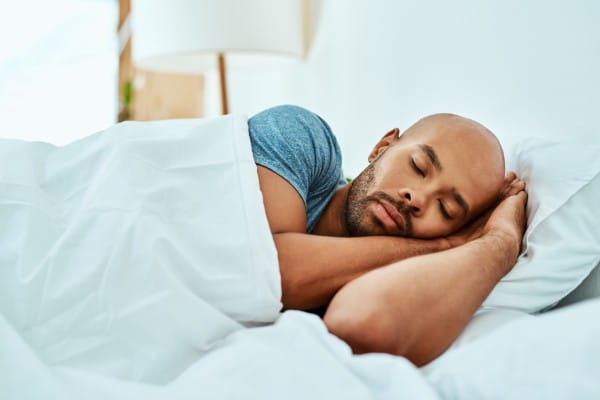Lack of sleep may be contributing to your expanding waistline. It’s true, diet and exercise are big players in the game of maintaining a healthy body weight, but getting enough shut-eye is just as important.
Most adults need around 7-9 hours of sleep per night. A study in the Annals of Internal Medicine found that restricting sleep to 5.5 hours per night resulted in less fat loss among individuals following the same diet and exercise routine. Study participants also reported feeling hungrier than those getting more sleep.
Why the difference in weight loss among the two groups? Research shows that decision-making and hormone changes are two factors.
Too little sleep and decision-making
When it comes to choosing healthy foods or getting in your daily exercise, a well-rested brain is going to make those decisions a lot easier.
Missing out on sleep means you’ll feel tired and have less energy for exercise. You may crave more calorie- and carbohydrate-rich foods and have a harder time saying no to less healthy foods you wouldn’t normally eat.
While a tired brain is partly to blame, your hormones are also not helping!
Lack of sleep affects hormones
Without sleep, your hormones --the little chemical messengers than run your body--also go haywire.
The hormones worth noting include:
- Cortisol, a stress hormone, increases with lack of sleep. Cortisol slows down digestion and contributes to fat storage around the middle.
- Ghrelin, your hunger hormone, increases with lack of sleep. It’s not your imagination when you feel hungry all day after missing sleep.
- Leptin, the hormone that signals fullness or satisfaction with a meal, decreases with lack of sleep.
Simple steps to catch some ZZZs
“About a third of adults are not getting the recommended 7-9 hours of sleep each night. One of the most important things you can do is turn off screens a few hours before bed,” says Melanie Ames, FNP, Family Nurse Practitioner with Riverside Primary Care Kiln Creek.
Darkness sends a signal to the brain that it’s time for sleep. The light from digital devices like computer screens and smartphones interfere with our normal sleep patterns. Power down electronics several hours before bed as part of your bedtime routine.
You’ll also want to steer clear of your afternoon latte or any other caffeinated beverages later in the day. Caffeine is a stimulant that can interfere with good sleep.
Get help with your sleep
If you’re not feeling rested after sleep despite getting the recommended 7-9 hours, it may be the sign of other health problems.
Schedule an appointment with one of our primary care physicians to discuss your sleep today.



